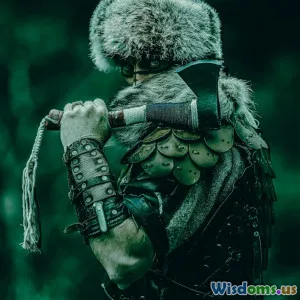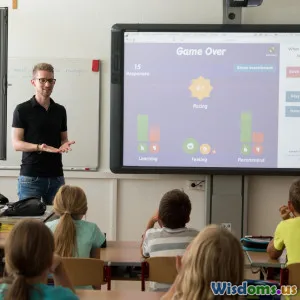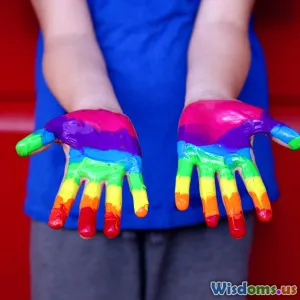
Why Ancient Legends Still Influence TwentyFirst Century Storytelling
9 min read Explore how ancient legends shape modern storytelling across media, revealing timeless themes and cultural resonance in the 21st century. (0 Reviews)
Why Ancient Legends Still Influence Twenty-First Century Storytelling
In a world teeming with technological innovations, virtual realities, and cutting-edge narratives, it might seem surprising that storytelling often harkens back to ancient myths and legends. Despite millennia of cultural evolution, stories birthed in antiquity continue to pulse through our collective imagination, guiding artists, writers, and filmmakers even today. But why do these ancient tales retain such a magnetic hold over twenty-first century storytelling? What makes them so enduring and relevant in an age defined by rapid change?
This exploration delves into the layers of ancient legends, unveiling their continued significance in modern narratives. From archetypes woven by Carl Jung to timeless human struggles, these stories not only entertain but also offer profound insights into our shared human experience.
The Universality of Mythic Themes
At the heart of ancient legends lie human themes as old as civilization itself—love, heroism, sacrifice, betrayal, and the quest for meaning. These themes crossing vast cultural and temporal divides serve as a testament to their universality.
Take, for example, the archetypal hero's journey, famously codified by Joseph Campbell in "The Hero with a Thousand Faces." Whether it’s Odysseus navigating trials in Homer’s Odyssey or Luke Skywalker confronting the Dark Side in Star Wars, the narrative structure follows a familiar trajectory: a call to adventure, hardships, transformation, and return. This pattern resonates because it mirrors the psychological and emotional maturation experienced by individuals.
This universality is why modern storytellers frequently face these ancient frameworks, not just for nostalgia but because these motifs inherently address fundamental aspects of the human condition. For instance, Marvel’s cinematic universe regularly revisits themes of responsibility and identity seen in ancient Greek tragedies.
Archetypes as Psychological Blueprints
Psychologically, arcane legends function as archetypes—symbolic patterns that structure an individual’s inner experience. Psychologist Carl Jung posited that myths express the 'collective unconscious,' a shared pool of memories and symbols across humanity.
Characters like the Wise Old Man, the Trickster, or the Innocent reflect psychological roles that individuals internalize or confront. Contemporary media regularly embeds these archetypes, enriching characters with deeper layers. Take Gandalf from J.R.R. Tolkien’s The Lord of the Rings, channeling the Wise Old Man archetype, catalyzing growth in protagonists.
By drawing on these archetypes, modern storytellers tap into a primal part of human cognition, ensuring the story strikes chords beyond surface-level entertainment, fostering emotional and cultural connections.
Enduring Moral and Ethical Questions
Ancient stories often engage with important moral dilemmas—what is justice, what does it mean to be a hero, and what are the consequences of hubris? These questions remain central as societies evolve.
For example, the Greek tragedy Antigone explores the conflict between state law and individual conscience, a theme replicated in modern narratives like The Hunger Games. Readers and viewers find relevance in these existential quandaries, reflecting ongoing societal debates.
Moreover, myths frequently embody lessons about balance and harmony with nature, prescient themes in today’s climate-conscious era. Native American legends emphasizing respect for the Earth inform environmental storytelling, linking past wisdom with present-day challenges.
Reinterpretation and Cultural Adaptation
While the core themes are ancient, twenty-first century storytellers reinterpret legends to reflect contemporary values and sensibilities. This dynamic dialogue between past and present serves to both preserve heritage and innovate.
Consider Black Panther, which integrates African mythology with futuristic Afrofuturism, challenging traditional Western mythic perspectives and providing marginalized voices a platform. Similarly, Neil Gaiman’s American Gods reimagines old deities struggling in the modern world, highlighting how legends evolve to fit new cultural contexts.
Adaptations inevitably mirror contemporary concerns—gender roles, diversity, technological impact—thus keeping the legends alive and meaningful for modern audiences.
Influence Across Media Platforms
Ancient legends permeate not just literature but film, television, video games, and even advertising. These varied media increase myths’ reach and influence.
The God of War video game series heavily incorporates Greek and Norse mythology, bringing mythical battles and characters to an immersive, interactive format that engages younger generations. Hollywood blockbusters like Clash of the Titans or Percy Jackson & the Olympians bank on the allure of rich mythic worlds to attract global audiences.
Interactive and digital storytelling allows for deeper explorations and personalized engagement with myths, exemplifying how ancient tales adapt to constitute core foundations of modern mythopoeic culture.
Real-World Influence and Cultural Identity
Beyond entertainment, ancient legends impact cultural identity and education. They preserve history and values, educate about societal norms, and keep alive linguistic and cultural traditions.
The Māori people of New Zealand, for example, continue to pass down Whakairo (carvings) and Kōrero Pūrākau (legendary stories) that embed genealogies and moral lessons, maintaining cohesion and pride. In mainstream societies, festivals like Halloween have roots in Celtic Samhain legends, illustrating myth’s influence on holidays and collective customs.
Their integration into education fosters critical thinking about heritage, ethics, and shared human experiences, suggesting myths are tools of cultural continuity.
Conclusion: Timeless Stories for a Rapidly Changing World
Ancient legends endure because they meet an enduring human need: to understand ourselves and the world through narrative frameworks that resonate deeply and universally. They offer both an anchor to our collective past and a springboard for creative innovation.
In the twenty-first century, as we grapple with profound social and technological change, these myths adapt and thrive, reminding us that while technologies and contexts may evolve, human nature remains intriguingly constant. Whether through blockbuster films, immersive games, or literary retellings, ancient legends continue to illuminate the pathways of modern storytelling, offering timeless wisdom and unending inspiration.
Embracing these tales enables creators and audiences alike to connect across centuries, cultures, and perspectives—highlighting that the power of story is as ancient as humanity itself and as vital as ever.
References:
- Campbell, Joseph. The Hero with a Thousand Faces. Princeton University Press, 1949.
- Jung, Carl. The Archetypes and The Collective Unconscious. Routledge, 1959.
- Leeming, David. Mythology: The Voyage of the Hero. Oxford University Press, 1998.
- Segal, Robert A. Theorizing about Myth. University of Massachusetts Press, 1999.
- Daphne Gnall. (2020). "The Power of Narrative: Ancient Myths in Modern Media". Journal of Cultural Studies, 34(2).
Rate the Post
User Reviews
Popular Posts





















